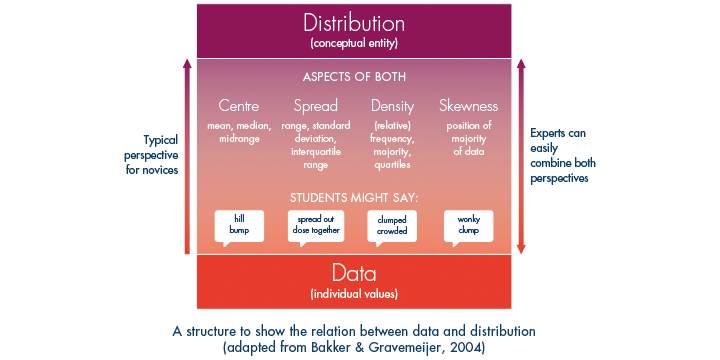10 August 2018

What does research suggest about effective ways to introduce comparison between data sets?
- Comparison between data sets is a crucial composite skill and more research/teacher support is required in this area
- Students should be encouraged to explore and inquire about data and to create and use multiple representations
- Students should be encouraged to start with more informal ideas about shape before moving on to more formal conceptions (and language) such as mean, median and, later, quartiles
- Teachers should help students to understand data flexibly: as an aggregate as well as a set of individual cases (see infographic)
- From early stages teachers should be clear with students about the difference between sample and population, and explore the effect of sampling in more detail later on
- Students should start with identifying and then interpreting differences between data sets, considering ideas of measurable conjectures, variability, context and inference
- Specifically designed software such as TinkerPlots and Fathom can support learning
View Espresso